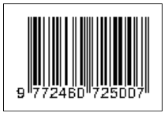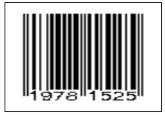Classification of Sambas Traditional Fabric “Kain Lunggi” Using Texture Feature
Alda Cendekia Siregar(1*), Barry Ceasar Octariadi(2)
(1) Department of Informatics, Faculty of Engineering, Universitas Muhammadiyah, Pontianak
(2) Department of Informatics, Faculty of Engineering, Universitas Muhammadiyah, Pontianak
(*) Corresponding Author
Abstract
Traditional fabric is a cultural heritage that has to be preserved. Kain Lunggi is Sambas traditional fabric that saw a decline in its crafter. To introduce Kain Lunggi in a broader national and global society in order to preserve it, a digital image processing based system to perform Kain Lunggi pattern recognition need to be built. Feature extraction is an important part of digital image processing. The visual feature that does not represent the character of an object will affect the accuracy of a recognition system. The purposes of this research are to perform feature selection on sets of feature to determine the best feature that can increase recognition accuracy.
This research conducted in several steps which are image acquisition of Kain Lunggi pattern, preprocessing to reduce image noise, feature extraction to obtain image features, and feature selection. GLCM is implemented as a feature extraction method. Feature extraction result will be used in a feature selection process using CFS (Correlation-based Feature Selection) methods. Selected features from CFS process are Angular Second Moment, Contrast, and Correlation. Selected features evaluation is conducted by calculating classification accuracy with the KNN method. Classification accuracy prior to feature extraction is 85.18% with K values K=1 ; meanwhile, the accuracy increases to 88.89% after feature selection. The highest accuracy improvement of 20.74% in KNN occurred when using K value K= 4.
Keywords
Full Text:
PDFReferences
[1] I. W. Fajar, “Museum tenun songket sambas,” Jurnal Online Mahasiswa S1 Arsitektur UNTAN , vol. 4, no. September 2016, pp. 19–32, 2014.
[2] N. Arwanda., Agani, “Content Based Image Retrieval Batik Tradisional Yogyakarta Dengan Ekstrasi Ciri Berdasarkan Tekstur Filter Gabor Wavelets 2D Skripsi Content Based Image Retrieval Dengan Ekstrasi Ciri Berdasarkan Tekstur Filter Gabor Wavelets 2D,” Ticom, vol. 1, no. 3, pp. 12–18, 2013.
[3] A. Haris Rangkuti, A. Harjoko, and A. E. Putro, “Content based batik image retrieval,” J. Comput. Sci., vol. 10, no. 6, pp. 925–934, 2014.
[4] A. A. Kasim, R. Wardoyo, and A. Harjoko, “The selection feature for batik motif classification with information gain value,” Commun. Comput. Inf. Sci., vol. 788, pp. 106–115, 2017.
[5] M. Sholihin, S. Mujilahwati, R. Wardhani, F. Teknik, and U. I. Lamongan, “Classification of Batik Lamongan Based on Features of,” vol. 9, no. 1, pp. 25–32, 2017.
[6] R. T. Wahyuningrum and I. A. Siradjuddin, “An efficient batik image retrieval system based on color and texture features,” J. Theor. Appl. Inf. Technol., vol. 81, no. 2, pp. 349–354, 2015.
[7] Y. A. Sari, R. K. Dewi, and C. Fatichah, “Seleksi Fitur Menggunakan Ekstraksi Fitur Bentuk, Warna, Dan Tekstur Dalam Sistem Temu Kembali Citra Daun,” JUTI J. Ilm. Teknol. Inf., vol. 12, no. 1, p. 1, 2014.
[8] R. C. Gonzalez and R. E. Woods, Digital Image Processing, 2nd ed. Boston, MA, USA: Addison-Wesley Longman Publishing Co., Inc., 1992.
[9] C. Mathworks, “Computer Vision System Toolbox TM User ’ s Guide R 2015 b,” Mathwork Inc., 2015.
[10] D. Putra, “Sistem Biometrika,” Yogyakarta Andi Offset, 2009.
[11] F. Albregtsen, “Statistical Texture Measures Computed from Gray Level Co-occurrence Matrices,” … Lab. Dep. Informatics, Univ. …, 2008.
[12] M. Hall and L. Smith, “Feature Selection for Machine Learning : Comparing a Correlation-based Filter Approach to the Wrapper CFS : Correlation-based Feature,” Int. FLAIRS Conf., 1999
[13] Kusumadewi. Sri, Pengantar Jaringan Syaraf Tiruan, Yogyakarta :Teknik Informatika FT UII, 2010.
Article Metrics
Refbacks
- There are currently no refbacks.
Copyright (c) 2019 IJCCS (Indonesian Journal of Computing and Cybernetics Systems)

This work is licensed under a Creative Commons Attribution-ShareAlike 4.0 International License.
View My Stats1








